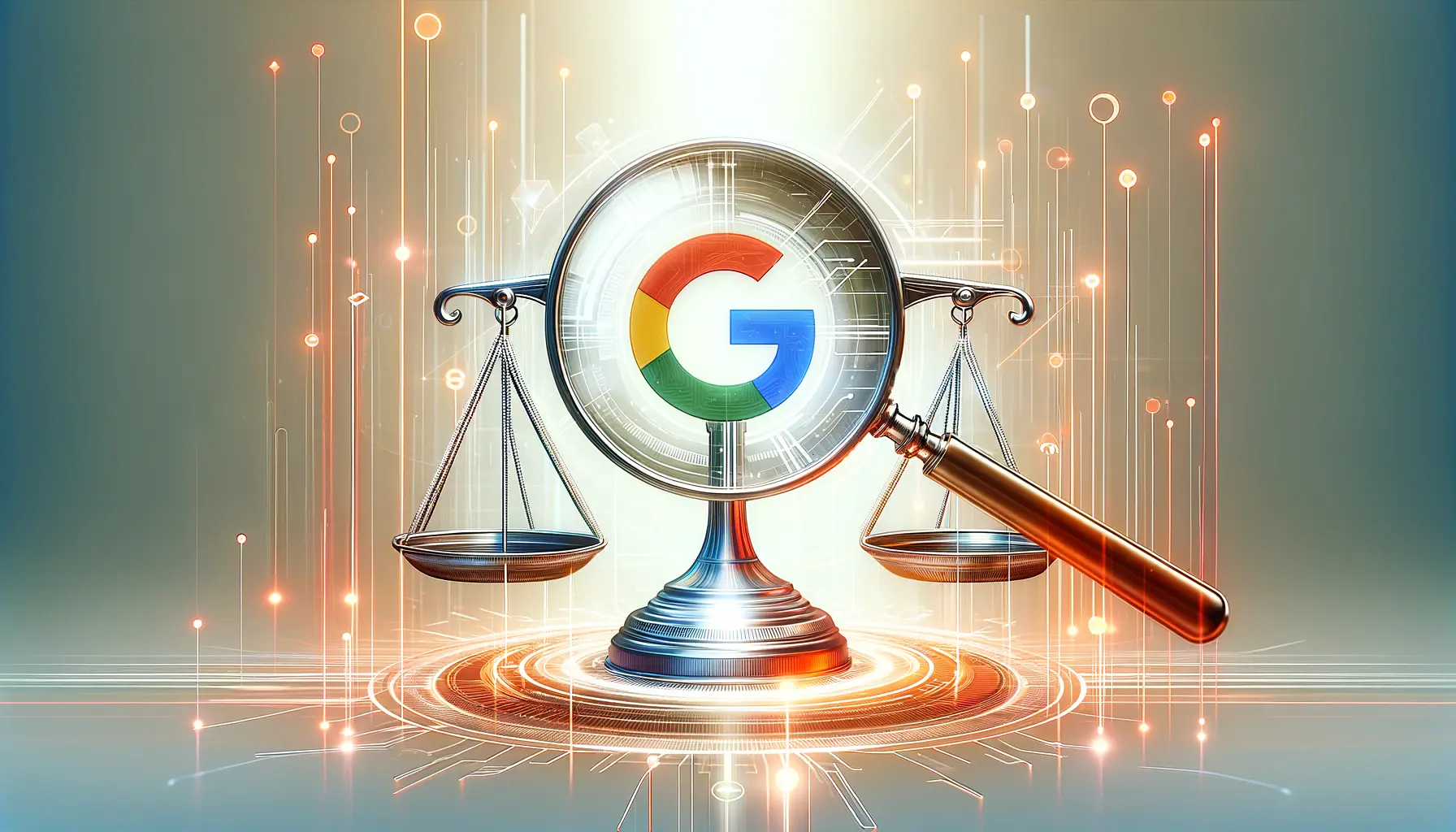The landscape of search engine optimization (SEO) is perpetually evolving, with Google’s innovations often at the forefront of change.
For law firms, staying ahead in the digital space is not just about visibility but ensuring that their services align with the queries and needs of potential clients.
The introduction of Google’s Search Generative Experience (SGE) marks a significant shift in how content is discovered, indexed, and ranked.
This evolution is not just a technical update; it’s a transformation in the approach to SEO, especially for sectors as competitive and specialized as legal services.
Understanding Google SGE and its implications for law firm SEO requires a deep dive into the mechanics of generative AI and its role in search algorithms.
The promise of SGE lies in its ability to understand and interpret the nuances of human language more effectively, offering search results that are not only relevant but also contextually rich.
For law firms, this means the strategies for optimizing their online presence must adapt to prioritize content quality, user intent, and the sophisticated nuances of AI-driven search functionalities.
The goal is to not just rank well but to become the most authoritative and trusted source of legal information in the eyes of both Google and potential clients.
- Understanding Google’s SGE in the Legal Sector
- Optimizing Content for SGE
- Building Authority and Trust Online
- Local SEO for Law Firms
- Link Building Strategies for Law Firms
- Measuring SEO Success for Law Firms
- Future Trends in Legal SEO
- Embracing the Future of Law Firm SEO with Google SGE
- FAQs on Google SGE and Law Firm SEO
Understanding Google’s SGE in the Legal Sector
The Basics of Google SGE
At its core, Google’s Search Generative Experience represents a leap towards more intuitive and human-like search interactions.
By leveraging advanced AI, SGE aims to understand queries in a more nuanced manner, considering context, intent, and the subtleties of language.
For law firms, this means that the traditional keyword-stuffing tactics are no longer sufficient.
Instead, content must be crafted to answer questions, solve problems, and provide value in a way that aligns with the sophisticated understanding capabilities of SGE.
This shift emphasizes the importance of topic authority and depth.
Law firms must now focus on developing comprehensive content that covers topics thoroughly, addressing not just the primary keywords but also related terms, questions, and concerns that potential clients might have.
This approach not only aligns with SGE’s capabilities but also positions law firms as thought leaders in their respective areas of expertise.
Implications for Law Firm SEO Strategies
The introduction of SGE necessitates a reevaluation of SEO strategies within the legal sector.
The emphasis moves towards creating content that genuinely serves the user’s needs, offering clear, concise, and informative answers to their legal queries.
This user-first approach is crucial for law firms aiming to improve their online visibility and engagement.
Content must be meticulously researched, well-written, and directly relevant to the services offered by the firm, ensuring it meets the high-quality standards expected by Google’s SGE.
Moreover, the technical aspects of SEO, such as site structure, mobile optimization, and page speed, continue to play a vital role in how effectively law firms can compete in the digital space.
These elements ensure that once users find the content, their experience is seamless, encouraging engagement, and, ultimately, conversion.
Incorporating SGE’s AI-driven capabilities into your law firm’s SEO strategy is not just about adapting to new technology; it’s about enhancing the quality and relevance of your content to meet the evolving expectations of both search engines and potential clients.
Optimizing Content for SGE
With the advent of Google’s Search Generative Experience, the approach to content creation and optimization in the legal sector must evolve.
Law firms are now tasked with producing content that not only ranks well but also genuinely satisfies the search intent of their potential clients.
This shift towards a more nuanced understanding of content by search engines means that law firms need to refine their strategies to stay competitive.
The key to success in this new SEO landscape is a dual focus on quality and relevance.
Content must be meticulously crafted to address the specific needs and questions of those seeking legal assistance.
This involves a strategic layering of information, starting with a broad introduction to the topic, followed by a deep dive into more detailed aspects, all the while ensuring that the content remains engaging and accessible to the reader.
Strategies for Content Optimization
- Identify User Intent: Understanding the intent behind search queries is crucial. Content should be designed to answer questions, provide solutions, and offer valuable insights into legal issues that potential clients are facing.
- Comprehensive Coverage: Topics should be covered thoroughly, addressing all facets of an issue. This includes background information, legal precedents, potential outcomes, and practical advice, ensuring that readers gain a comprehensive understanding of the subject.
- Use of Semantic Keywords: Incorporating related terms and synonyms can help content resonate with SGE’s AI, which looks beyond exact match keywords to understand the topic’s context and relevance.
- Engaging and Accessible Writing: The content must be written in a way that is both informative and engaging, breaking down complex legal jargon into language that is easy for the layperson to understand.
- Regular Updates: The legal field is constantly evolving, so content must be regularly reviewed and updated to reflect the latest laws, regulations, and legal precedents.
Technical SEO Considerations
Beyond the content itself, technical SEO remains a cornerstone of a successful strategy.
This includes ensuring that the law firm’s website is mobile-friendly, loads quickly, and is structured in a way that search engines can easily understand.
These technical elements are crucial for both ranking and providing a positive user experience, which can significantly impact engagement and conversion rates.
Optimizing for Google’s SGE is not just about adhering to a set of technical guidelines; it’s about embracing a philosophy of providing genuine value through content.
Law firms that can effectively communicate their expertise and authority on relevant topics will be well-positioned to benefit from the opportunities presented by SGE.
Remember, the goal of optimizing for SGE is to align your content strategy with the evolving capabilities of search engines, ensuring that your law firm remains visible, relevant, and authoritative in the digital landscape.
Building Authority and Trust Online
In the digital age, establishing authority and trust is paramount for law firms aiming to stand out in a crowded market.
Google’s Search Generative Experience (SGE) places a premium on content that not only answers users’ queries but also emanates credibility and expertise.
For law firms, this means that beyond optimizing for SEO, there’s a critical need to build a reputation online that reflects their real-world expertise and reliability.
Authority and trust are not built overnight.
They are the result of consistent efforts to provide valuable information, engage with the audience, and demonstrate expertise in a specific legal field.
This process involves several key strategies, each contributing to the firm’s overall reputation and visibility online.
Key Strategies for Establishing Online Authority
- Quality Content Creation: The foundation of online authority is high-quality content that addresses the needs and questions of your target audience. This includes detailed articles, blog posts, case studies, and FAQs that showcase the firm’s knowledge and experience.
- Engagement with Audience: Interacting with users through comments, social media, and other online platforms can build trust and establish the firm’s commitment to their community. This direct engagement also provides valuable insights into the audience’s needs and preferences.
- Expert Contributions: Contributing to reputable legal publications, forums, and conferences can further establish a firm’s authority in its field. These contributions help to expand the firm’s reach and reinforce its status as an industry leader.
- Client Testimonials and Reviews: Positive feedback from clients can significantly enhance a firm’s credibility. Showcasing testimonials and reviews on the website and across social media platforms can influence potential clients’ perceptions and decisions.
- Professional Certifications and Awards: Highlighting the firm’s achievements, certifications, and awards can serve as proof of its expertise and commitment to excellence in the legal field.
SEO and Authority Building
SEO and authority building are intrinsically linked.
Google’s algorithms are designed to favor content from sources that demonstrate expertise, authoritativeness, and trustworthiness (E-A-T).
This means that the efforts to build authority directly contribute to improving SEO performance.
By focusing on creating valuable content, engaging with the audience, and establishing a strong online presence, law firms can enhance their E-A-T, which in turn, positively affects their search rankings.
Building authority and trust online is a strategic investment that goes beyond traditional SEO tactics.
It requires a holistic approach that encompasses content quality, audience engagement, and the demonstration of expertise.
For law firms, this investment not only improves their visibility in search results but also strengthens their relationship with potential clients, fostering trust and credibility in the digital realm.
Consider your online presence as an extension of your law firm’s real-world reputation. Every piece of content, interaction, and public engagement contributes to building a trustworthy and authoritative online identity.
Local SEO for Law Firms
For many law firms, local search visibility is a critical component of their marketing strategy.
With Google’s Search Generative Experience (SGE) emphasizing the importance of relevance and context, optimizing for local SEO has become more crucial than ever.
This focus ensures that law firms are not only visible but also accessible to potential clients in their geographical area.
The goal is to appear prominently in local search results, maps, and business listings, making it easy for clients to find and contact the firm.
Local SEO strategies for law firms involve a combination of on-page optimization, local listings management, and community engagement.
These efforts are designed to signal to Google the relevance and authority of the firm within its local context, thereby improving its visibility in localized search queries.
Key Components of Local SEO
- Google My Business Optimization: A complete and optimized Google My Business (GMB) profile is essential for local visibility. This includes accurate contact information, business hours, categories, and services offered, as well as high-quality images and regular updates.
- Local Keywords: Incorporating local keywords into the website’s content, meta tags, and URLs helps Google understand the geographical relevance of the firm. This includes the names of cities, neighborhoods, and local landmarks where the firm operates.
- Local Citations and Listings: Ensuring the law firm is listed in local business directories and legal-specific listings with consistent NAP (Name, Address, Phone Number) information boosts local SEO. It’s also important to manage these listings actively to keep the information up-to-date.
- Reviews and Ratings: Encouraging satisfied clients to leave positive reviews on Google My Business and other review platforms can significantly impact local search rankings. Responding to reviews, both positive and negative, demonstrates engagement and commitment to client satisfaction.
- Local Content Creation: Publishing content that addresses local issues, laws, or events can help establish the firm’s relevance and authority in its local area. This can include blog posts, local case studies, or guides on local legal processes.
Challenges and Opportunities in Local SEO
While local SEO offers a pathway to increased visibility and client engagement, it also presents unique challenges.
Law firms must navigate the complexities of local search algorithms, manage their online reputation, and stay ahead of the competition.
However, these challenges also represent opportunities to connect with the local community, build trust, and establish a strong local presence.
By prioritizing local SEO, law firms can enhance their visibility in the most relevant search results, making it easier for potential clients to find and choose their services.
This targeted approach not only improves online performance but also drives real-world results, increasing inquiries, consultations, and client acquisitions.
Local SEO is not just about being found; it’s about being chosen. By optimizing for local search, law firms can position themselves as the go-to authority in their area, directly impacting their growth and success.
Link Building Strategies for Law Firms
Link building is a cornerstone of any effective SEO strategy, including for law firms.
In the context of Google’s Search Generative Experience (SGE), the quality and relevance of backlinks to a law firm’s website play a crucial role in determining its authority and ranking in search results.
High-quality links from reputable sources signal to Google that the content is valuable, trustworthy, and relevant, thereby improving its visibility in search results.
However, link building in the legal industry presents unique challenges.
Law firms must navigate ethical considerations and industry regulations while striving to build a link profile that enhances their SEO performance.
This requires a strategic approach that focuses on quality over quantity, emphasizing links from authoritative and relevant sources.
Effective Link Building Techniques
- Guest Blogging: Contributing articles to reputable legal blogs or industry publications can generate high-quality backlinks to the firm’s website. This not only enhances SEO but also positions the firm’s attorneys as thought leaders in their field.
- Legal Directories: Listing the firm in respected legal directories is a straightforward way to gain authoritative backlinks. These directories are often considered trustworthy by Google and can improve the firm’s online visibility.
- Community Engagement: Participating in community events, offering pro bono services, or sponsoring local activities can lead to mentions and links from local organizations’ websites. These links can boost local SEO and demonstrate the firm’s commitment to the community.
- Professional Associations: Membership in legal associations and contributions to their publications or events can provide valuable backlinks. These associations are typically seen as authoritative sources by search engines.
- Content Marketing: Creating compelling, informative content that addresses the needs and interests of potential clients can naturally attract backlinks. This includes blog posts, infographics, videos, and other resources that people are likely to share and link to.
Navigating Ethical Considerations
While pursuing link-building opportunities, law firms must remain mindful of ethical guidelines and professional conduct standards.
This includes ensuring that any content or links do not misrepresent the firm’s services, expertise, or results.
Transparency, accuracy, and integrity should guide all link-building efforts to maintain the firm’s reputation and comply with legal advertising regulations.
Link building for law firms is a strategic endeavor that requires patience, creativity, and adherence to ethical standards.
By focusing on building a portfolio of high-quality, relevant links, law firms can improve their SEO performance, enhance their online authority, and attract more clients.
However, the key is to pursue link-building activities that align with the firm’s values and the legal industry’s ethical standards, ensuring that SEO success is achieved without compromising professional integrity.
True authority and SEO success come from building relationships and providing value. High-quality backlinks are a byproduct of being a valuable resource in the legal community.
Measuring SEO Success for Law Firms
For law firms investing in SEO, particularly in adapting to Google’s Search Generative Experience (SGE), measuring success is crucial to understanding the effectiveness of their strategies and making informed decisions for future optimizations.
SEO metrics provide insights into how well a law firm’s website is performing in search rankings, how much traffic it is receiving, and the quality of that traffic in terms of engagement and conversion rates.
However, the complexity of SEO for law firms requires a nuanced approach to analytics, focusing on metrics that truly reflect the firm’s goals and the client journey.
Identifying the right metrics and tools for measuring SEO success is essential.
This involves going beyond surface-level indicators like rankings and traffic volume to analyze deeper metrics that indicate engagement, authority, and ultimately, the return on investment (ROI) of SEO efforts.
Key Metrics for Law Firm SEO
- Organic Traffic: The volume of visitors coming to the website from search engines. An increase in organic traffic indicates improved visibility and interest in the firm’s services.
- Keyword Rankings: The positions of the firm’s targeted keywords in search results. While not the only indicator of success, improvements in rankings can signal enhanced SEO performance.
- Conversion Rate: The percentage of website visitors who take a desired action, such as filling out a contact form or calling the firm. This metric is crucial for understanding the effectiveness of the website in turning visitors into clients.
- Bounce Rate: The rate at which visitors leave the website after viewing only one page. A high bounce rate may indicate that the site’s content is not meeting the needs or expectations of its visitors.
- Backlink Profile: The quantity and quality of external sites linking back to the firm’s website. A strong backlink profile suggests authority and trustworthiness in the eyes of search engines.
Tools for Tracking and Analysis
Several tools are available to law firms for tracking SEO performance and analyzing data.
Google Analytics offers comprehensive insights into website traffic, user behavior, and conversion metrics.
Google Search Console provides data on search rankings, website visibility, and indexing issues.
Additionally, SEO platforms like SEMrush or Ahrefs can help law firms monitor their backlink profile, track keyword rankings, and conduct competitive analysis.
Measuring SEO success is an ongoing process that requires regular monitoring and adjustment.
Law firms should set clear goals for their SEO efforts, regularly review their performance against these goals, and be prepared to adapt their strategies in response to changes in search algorithms, market dynamics, and client behavior.
By focusing on the metrics that matter most to their business and using the right tools for analysis, law firms can effectively measure the impact of their SEO strategies and continue to improve their online presence and client acquisition efforts.
Focusing solely on rankings and traffic volume can be misleading. True SEO success for law firms is measured by the quality of traffic and the ability to convert visitors into clients.
Future Trends in Legal SEO
The landscape of SEO is constantly evolving, and the legal sector is no exception.
As technology advances and search engines like Google continue to refine their algorithms, law firms must stay ahead of the curve to maintain and enhance their online visibility.
The introduction of Google’s Search Generative Experience (SGE) is just one example of how the digital marketing landscape is changing, requiring law firms to adapt their strategies to meet new challenges and seize emerging opportunities.
Understanding and anticipating future trends in legal SEO is crucial for law firms aiming to achieve long-term success in the digital realm.
These trends not only reflect changes in technology but also shifts in user behavior and expectations.
By staying informed and agile, law firms can position themselves to benefit from these developments, ensuring their online presence remains strong and effective.
Emerging Trends in Legal SEO
- Increased Focus on User Experience (UX): Google’s algorithms are placing greater emphasis on the user experience, including site speed, mobile-friendliness, and intuitive navigation. Law firms will need to ensure their websites are optimized for UX to rank well and engage potential clients effectively.
- More Sophisticated Use of AI and Machine Learning: As AI and machine learning technologies continue to evolve, search engines will become even better at understanding and interpreting user intent. Law firms will need to create content that aligns closely with the needs and questions of their target audience, leveraging AI to enhance their content strategies.
- Importance of Voice Search: With the rise of digital assistants and smart speakers, voice search is becoming increasingly important. Law firms will need to optimize their content for conversational queries and local search to capture this growing segment of the market.
- Video Content and SEO: Video content is becoming more important for SEO, offering law firms an opportunity to engage potential clients through a different medium. Optimizing video content for search, including the use of transcripts and SEO-friendly titles and descriptions, will be key.
- Enhanced Local SEO Strategies: As competition for local search visibility intensifies, law firms will need to refine their local SEO strategies. This includes more precise targeting, improved local listings management, and increased engagement with local communities.
Adapting to Change
Adapting to these trends requires law firms to be proactive and forward-thinking in their SEO and digital marketing strategies.
It’s not just about reacting to changes as they occur but anticipating them and preparing in advance.
This might involve investing in new technologies, training staff on the latest digital marketing techniques, or revisiting and revising existing content and SEO strategies.
The future of legal SEO is dynamic and full of potential for law firms willing to embrace change and innovate.
By focusing on the needs and behaviors of their target audience, leveraging new technologies, and maintaining a commitment to quality and relevance, law firms can navigate the evolving digital landscape successfully and continue to grow their online presence and client base.
The key to future success in legal SEO lies in adaptability, innovation, and a deep understanding of both technology and client needs. Law firms that can navigate these changes effectively will be well-positioned to thrive in the digital age.
Embracing the Future of Law Firm SEO with Google SGE
The integration of Google’s Search Generative Experience (SGE) into SEO strategies represents a pivotal shift for law firms aiming to enhance their online visibility and client engagement.
As we’ve explored, this evolution in search technology necessitates a holistic approach to digital marketing, one that transcends traditional SEO tactics and delves into the realms of content quality, user experience, and technological innovation.
The future of law firm SEO is not just about adapting to changes; it’s about leading with a strategy that is both responsive and anticipatory of the needs of potential clients and the capabilities of emerging technologies.
Strategic Adaptations for Success
- Focus on Quality and Relevance: Ensuring content is both informative and engaging, tailored to the specific needs and queries of the target audience.
- Enhance User Experience: Optimizing websites for speed, mobile responsiveness, and intuitive navigation to meet Google’s UX-focused ranking factors.
- Leverage Technological Advancements: Utilizing AI and machine learning to refine content strategies and improve the accuracy and relevance of search results.
- Optimize for Voice and Local Search: Adapting SEO practices to capture the growing segments of voice search and local queries, ensuring law firms remain accessible to their immediate communities.
- Invest in Video Content: Developing SEO-friendly video content to engage potential clients through diverse mediums, enhancing visibility and authority.
Conclusion: Navigating the SEO Landscape with Google SGE
The journey through the intricacies of SEO for law firms, especially in the context of Google’s SGE, underscores the importance of a dynamic and informed approach to digital marketing.
Law firms that embrace these changes, focusing on creating high-quality, relevant content, and optimizing their online presence for both traditional and emerging search technologies, will not only survive but thrive in the competitive digital landscape.
The key to success lies in understanding that SEO is not a static field; it’s an ever-evolving discipline that requires continuous learning, adaptation, and innovation.
As law firms navigate the complexities of Google SGE and the broader shifts in SEO practices, the focus should always remain on the ultimate goal: to connect with and serve their clients effectively.
By aligning SEO strategies with the principles of quality, relevance, and user experience, law firms can ensure that they not only meet but exceed the expectations of both search engines and potential clients.
The future of legal SEO is bright for those who are prepared to embrace change, invest in their digital presence, and commit to providing genuine value in the online world.
Want your website to top Google search rankings? Leave the SEO to our professional agency!
FAQs on Google SGE and Law Firm SEO
Explore common questions about leveraging Google’s Search Generative Experience for law firm SEO.
Google SGE, or Search Generative Experience, is an AI-driven approach to search, aiming to provide more intuitive and relevant search results by understanding the context and intent behind queries.
SGE impacts law firm SEO by prioritizing content that offers genuine value, is contextually relevant, and meets the specific needs of users, thereby influencing content strategy and optimization.
Yes, by aligning your SEO strategy with SGE’s focus on relevance and user intent, your law firm can improve its online visibility and attract more targeted traffic.
Best practices include creating high-quality, informative content, optimizing for user intent, leveraging AI for content optimization, and ensuring your website offers an excellent user experience.
Content quality is crucial for SGE optimization as Google SGE aims to surface content that is not only relevant but also authoritative and informative, directly impacting rankings.
Yes, SGE encourages a more nuanced keyword strategy that goes beyond traditional keywords to include semantic search and natural language processing to better match user intent.
Success can be measured by tracking improvements in organic traffic, keyword rankings, user engagement metrics, and conversion rates, reflecting the effectiveness of SGE-aligned strategies.
AI plays a significant role by enabling more sophisticated content analysis and personalization, helping law firms to create content that better aligns with user queries and intent.













